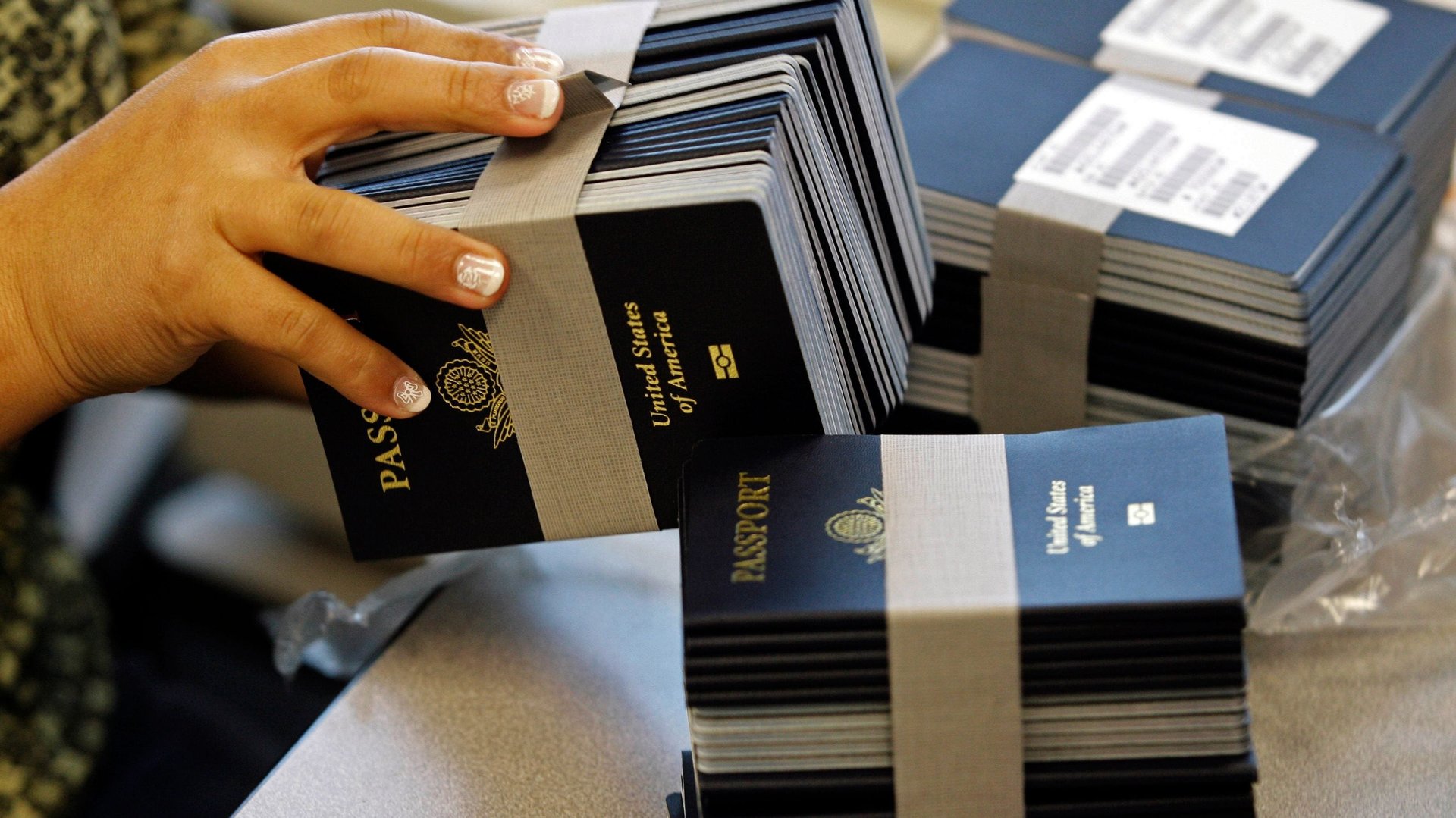The IRS doesn’t know how to get in touch with American expats. But it can revoke their passports
Thousands of Americans could be denied a new or renewed passport if they don’t settle their tax bills soon. But if they live abroad, they may not even know that they owe money to the Internal Revenue Service—the tax agency reportedly struggles to send mail to foreign addresses.


Thousands of Americans could be denied a new or renewed passport if they don’t settle their tax bills soon. But if they live abroad, they may not even know that they owe money to the Internal Revenue Service—the tax agency reportedly struggles to send mail to foreign addresses.
At least 362,000 Americans risk having their requests to renew or get a new passport denied if they’ve failed to settle overdue tax debts, according to a recent report by the Wall Street Journal. According to a new policy, the IRS is sending names of Americans affected by this law to the State Department, which confirms it has already denied passports to some debtors. The State Department also has the power to revoke debtors’ passports, though for now authorities are focusing on denying new passport requests.
But a 2015 report issued by the Treasury Inspector General for Tax Administration (TIGTA) point to a particular problem for Americans living abroad: “IRS data systems are not designed to accommodate the different styles of international addresses, which can cause notices to be undeliverable. Other factors complicate the delivery of international mail, making its delivery less certain than domestic correspondence.”
The report also notes that though the IRS sent out 855,000 notices and letters to US taxpayers living in other countries in 2014, the agency “does not know if international taxpayers receive the tax correspondence sent to them.”
Some Americans maintain an US address to ensure they receive their mail. But others might be in for a nasty shock when they go to apply for a new passport.